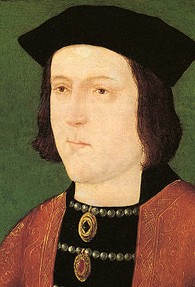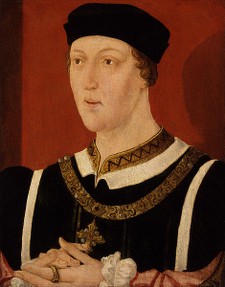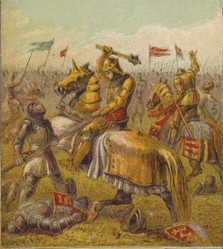When Edward IV first took the throne, he never managed to keep Henry VI under lock and key. It led to Henry VI taking the throne back. However, six months after that Edward IV went back to war and this time Henry VI was captured. Sometime between May 21 and May 22, 1471, Henry VI died but the cause of death has never been confirmed.
There are many who suspect Edward IV for his predecessor’s death. If you have seen The White Queen, you know that Henry VI was killed by Edward and his two brothers, George and Richard. It was a way to ensure the Lancastrians had nobody to place on the throne and could not fight against the York House.
However, did Edward IV kill Henry VI?


 On May 22, Edward made it clear that his predecessor had died. The official reason was from “purse displeasure and melancholy,” but very few believed this. After all, the Lancastrian King was behind bars in the Tower of London and there were plenty of people who wanted his dead. It worked in Edward’s favor for him to die.
On May 22, Edward made it clear that his predecessor had died. The official reason was from “purse displeasure and melancholy,” but very few believed this. After all, the Lancastrian King was behind bars in the Tower of London and there were plenty of people who wanted his dead. It worked in Edward’s favor for him to die.
 The death of Henry VI and the question of whether Edward IV had something to do with it circulated for years afterwards. In fact, in 1920, his remains were exhumed, and there was still some hair attached to the skull. Parts of the hair were darker with dried blood, suggesting that Henry had been murdered with a swift blow to the head. The man who reported this was W.H. St. John Hope, an architect and a man who had no qualifications to determine if it was blood or not. Dr. A. Macalister was an anatomy professor and present for the exhumation but never mentioned this dried blood. However, there were broken bones in the head, which would suggest a blow to the head.
The death of Henry VI and the question of whether Edward IV had something to do with it circulated for years afterwards. In fact, in 1920, his remains were exhumed, and there was still some hair attached to the skull. Parts of the hair were darker with dried blood, suggesting that Henry had been murdered with a swift blow to the head. The man who reported this was W.H. St. John Hope, an architect and a man who had no qualifications to determine if it was blood or not. Dr. A. Macalister was an anatomy professor and present for the exhumation but never mentioned this dried blood. However, there were broken bones in the head, which would suggest a blow to the head.


 Alternate History: What If Mary I Had a Child?on 01/26/2015
Alternate History: What If Mary I Had a Child?on 01/26/2015
 Francis II of France Dies: Mary, Queen of Scots Returns Homeon 12/05/2014
Francis II of France Dies: Mary, Queen of Scots Returns Homeon 12/05/2014
 Does Writedge Pay? Payment Proofon 12/03/2014
Does Writedge Pay? Payment Proofon 12/03/2014
 Alternate History: What If Lady Jane Grey Was Not Deposed?on 11/11/2014
Alternate History: What If Lady Jane Grey Was Not Deposed?on 11/11/2014



Comments